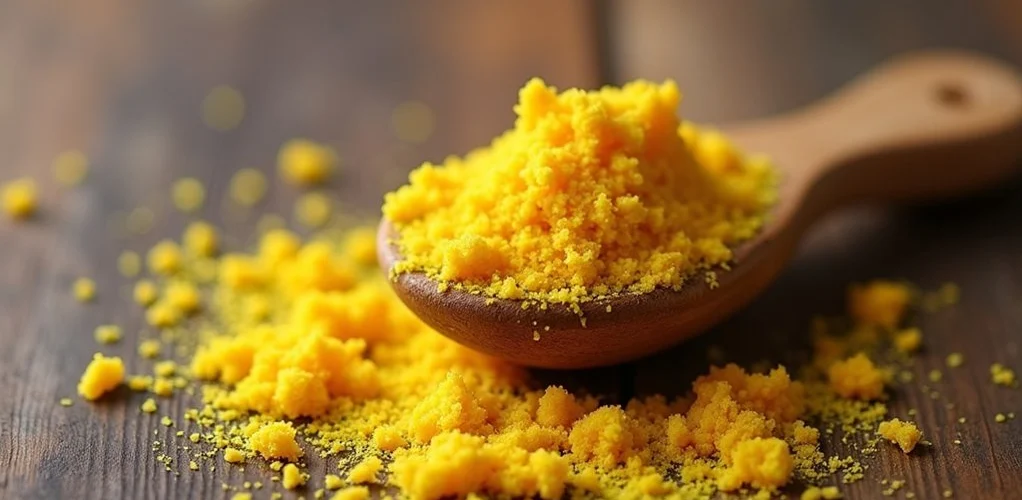
Mustard is indeed a low-carb condiment, making it an excellent choice for ketogenic and carb-conscious diets. Traditional yellow mustard contains approximately 0.3g net carbs per tablespoon, while Dijon varieties have around 2.0g. Most plain mustard varieties provide minimal carbohydrates while offering essential vitamins and supporting digestive health. When selecting mustard, consumers should avoid sweetened versions like honey mustard, which can contain up to 7g of carbs per serving. Understanding the nuances between mustard varieties reveals their versatile roles in low-carb cuisine.
Key Takeaways
- Most mustard varieties contain only 1.0g net carbs per 100g serving, making them exceptionally low-carb friendly.
- Traditional yellow mustard contains just 0.3g net carbs per tablespoon, perfect for keto and low-carb diets.
- Avoid honey and sweet mustard varieties, which can contain 5-7g net carbs per tablespoon.
- Regular mustard consists mainly of water, seeds, vinegar, and spices, naturally keeping carbohydrate content minimal.
- One teaspoon of standard mustard contains approximately 0.05g net carbs, making it nearly carb-free.
Understanding Mustard's Nutritional Profile
The nutritional composition of mustard reveals why it's a favored condiment among those following low-carb eating plans. As a keto-friendly condiment, mustard contains minimal carbohydrate content, with only 1.0g net carbs per 100g serving. When examining the ingredients list, mustard's simple composition of water, seeds, vinegar, and spices aligns perfectly with ketogenic diet requirements. A detailed analysis of Total Carbohydrates shows that one tablespoon provides just 1.8g carbohydrates, along with healthy fats and protein, making it an excellent choice for any low carb diet. Most varieties, including Dijon and whole grain options, maintain consistently low grams of net carbs, typically around 0.05g per teaspoon. Additionally, mustard's sodium content supports electrolyte balance, an essential aspect of maintaining ketosis. It's important to be cautious of high-carb condiments like ketchup and barbecue sauce, which often contain hidden sugars that can disrupt ketosis, making mustard a much better option for those on a keto diet.
Types of Mustard and Their Carb Content
While exploring different mustard varieties reveals varying carbohydrate content, most traditional mustard types remain remarkably low in carbs, making them excellent choices for carb-conscious diets.
Different mustards contain distinct carb counts, with traditional types like yellow and Whole Grain mustard containing approximately 1.0g net carbs per 100g serving. Dijon mustard remains a popular option with just 2g of net carbs per tablespoon, fitting easily into low-carb meal plans. However, varieties with added sugars, such as Honey Mustard and sweet mustards, carry higher carbohydrate content.
| Mustard Type | Serving Size | Net Carbs |
|---|---|---|
| Yellow/Traditional | 1 tbsp | 0.3g |
| Dijon | 1 tbsp | 2.0g |
| Honey Mustard | 1 tbsp | 5-7g |
| Sweet Mustard | 1 tbsp | 4.0g |
Health Benefits of Mustard on a Low-Carb Diet
Beyond its minimal carbohydrate content, mustard offers significant nutritional value for individuals following a low-carb lifestyle. As a condiment containing only 1.0g net carbs per 100g serving, it seamlessly integrates into ketogenic diet plans while providing essential vitamins A, B-6, C, E, and K1. These nutrients support overall health maintenance during a high-fat diet regimen.
Particularly significant is mustard's role in digestive health, as it promotes the production of digestive juices that aid in fat metabolism, making it especially beneficial for those following a low-carb diet.
Additionally, certain mustard varieties containing turmeric deliver anti-inflammatory benefits, supporting the body's natural healing processes. This combination of low net carbs and health-promoting properties makes mustard an ideal condiment choice for health-conscious individuals maintaining carbohydrate restrictions.
Creative Ways to Use Mustard in Keto Cooking
Transforming everyday low-carb meals becomes effortless with mustard's versatile flavor profile and minimal carbohydrate content. For those following a low carb lifestyle, mustard is keto-friendly and serves as a flavorful base for numerous culinary applications. Home chefs can create homemade salad dressings by combining mustard with olive oil and herbs, while marinades for grilled meats gain depth when mustard is mixed with coconut aminos. As a creamy spread, mustard blends perfectly with mayonnaise for lettuce wraps, and it serves as an excellent dip for low-carb vegetables, making healthy snacks more appealing. One particularly popular application is incorporating mustard into keto-friendly deviled eggs, where it enhances the filling's flavor while keeping net carbs minimal, proving that flavor and dietary restrictions can coexist harmoniously. Mustard can also be paired with low-carb vegetables like spinach and kale, adding a zesty kick while maintaining a keto-friendly diet.
Best Practices for Choosing Low-Carb Mustard Varieties
Building on mustard's versatility in low-carb cooking, selecting the right variety becomes a key factor in maintaining ketogenic dietary goals. When choosing low-carb mustard varieties, careful attention to the nutritional label is essential, particularly checking for net carbs and added sugars. Traditional options like yellow, Dijon, and spicy brown mustards emerge as excellent keto-friendly condiments.
| Mustard Type | Net Carbs/tsp | Best Uses |
|---|---|---|
| Yellow | <1g | Everyday condiment |
| Dijon | <1g | Marinades & dressings |
| Spicy Brown | <1g | Meat accompaniment |
For those seeking ultimate control over their carb intake, homemade mustard offers a reliable alternative. By combining mustard seeds with basic ingredients like vinegar and spices, enthusiasts can create custom varieties without unwanted sugars or additives.
Frequently Asked Questions
Can You Eat Mustard on a Low-Carb Diet?
Most mustard varieties are ideal for low-carb diets, containing minimal carbohydrates per serving. Traditional yellow, Dijon, and spicy brown mustards average 0.05g net carbs per teaspoon, making them excellent low-carb condiment choices.
Is Mustard a Sauce or Spread?
Mustard functions as both a sauce and spread, with diverse varieties offering different consistencies. Its versatile uses span from thin, pourable sauces to thick spreads, adapting across countless recipes and culinary pairings.
Does Mustard Kick You Out of Ketosis?
Pure mustard varieties are keto-friendly condiments with minimal carbohydrates, typically 1g per 100g serving. Regular consumption won't disrupt ketosis, though honey mustard should be avoided due to added sugars.
Is Colman's Mustard Keto?
Colman's Mustard is keto-friendly, containing only 1.0g net carbs per 100g serving. Its simple ingredient list, consisting primarily of mustard seeds, water, and vinegar, makes it a suitable condiment for ketogenic diets.
Conclusion
Mustard stands out as an excellent condiment choice for those following a low-carb or ketogenic diet, with most varieties containing less than 1 gram of carbohydrates per serving. By selecting natural, minimally processed mustards and checking labels for added sugars, individuals can confidently incorporate this flavorful condiment into their meals. Whether used as a spread, marinade, or recipe ingredient, mustard provides versatility and zest while supporting low-carb dietary goals.










No Comments